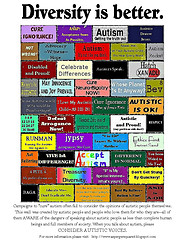No Compass
Now do feel free to stop me at any time when you’ve had enough, as I do have a tendency to go a little off track on occasions. I won’t be in the least bit offended as I’m well versed in social blunders of this kind. When I first meet someone new, I have a inclination not to mention children, mine or anyone else’s. Do I behave in this manner because I am ashamed? You’d be justified in that opinion, but you would be way off. Unlikely as it may seem, seeing as how I am a Brit, on the contrary, I like to think that I am being considerate to that person. Unless you, the listener, have unusually enhanced social skills, then if someone that you meet, such as me, tells you that they have a couple of autistic kids in tow, that might prove to be a little bit of a stumper. What is the appropriate etiquette when receiving such a piece of information?
I don’t know the answer to that, but I do know that whatever the person says, they at least, feel that it was wrong.
Now I am sympathetic to their plight and that is why I keep mum. [translation = don’t let on] As it turns out, after all this time, it doesn’t really matter what the reply is, as I’ve heard most of them, some of them many times and I can honestly say that I am not in the least bit offended any more. I feel sorry for you, the receiver of the information, because hearing this piece of information makes you feel uncomfortable.
It’s a tricky one though, if I leave it too long before I mention it to you then it can be even more of an unpleasant or disconcerting surprise.
I know that you’re just dying to know what the most common reply is? Well, sorry to disappoint, but generally the one that happens most often is an ‘oh!’ and a combination of a shifty eyes and a weak smile, followed by either a lengthy pause or a rapid change of subject.
But this isn’t really my area of expertise, seeing as how I hale from yonder small island, where ‘body language’ merely refers to rude hand gestures and there are no such things as social skills, merely rules, a hierarchy and a sense of decorum at all times. Now if my autistic children were hoping for a leg up [translation = advantage] in the realms of social interaction, then they basically drew the short straw. Since I’m out here, in Jolly Old California, rather than back there, at least I have the advantage of understanding the not so subtle messages that I exude. The tight face, stiff upper lip, brow frown and rigid shoulders, tell every one to keep their distance without me having to utter a single syllable. My diction may be first rate, my enunciation second to none, but that won’t get me very far with an autistic child because my facial expression doesn’t match my message. If you have a face like a poker, you are wasting your time trying to communicate with them. You need an animated face, a cheerleader’s movements, an Italian’s hand gestures and a tone of voice that is arresting. Without these tools you are wasting your time, you won’t even get their attention let alone permit a message to transmit.
Yes, when dealing with an autistic child, whilst it pains me more than you can ever know to admit it, two particularly loathsome American terms come to mind; ‘in your face’ and ‘on your case,’ because ‘would you mind awfully’ and ‘ when you have a mo’ just don’t cut it. Fortunately, learning to be a ‘citizen’ out here has conferred far more benefits upon me than the mere permission to work.


2 comments:
I know that look ("‘oh!’ and a combination of a shifty eyes and a weak smile") and the sense of indifference and "glad that's not on my plate" thereby communicated. Charlie was making of plenty of hum-sounds on the train today and if people notice, they are pretty good at averting their eyes.
I assure you I come across as animated, in my own domicile and in stranger-places.
I also avoid it; not only because of the eye shift and weak smile, but because especially people without kids don't find kids such a fascinating topic as I do.
My main response I get (when I do let on), with an Aspie, is: "He seems fine to me," in a tone of voice which conveys the idea that perhaps I am making this all up? Imagining it?
Or, they begin spouting statistics at me, as if I have not researched my own child's condition.
Both responses are meant to be kind. But it hasn't been long enough for me to refrain from being irritated.
Post a Comment